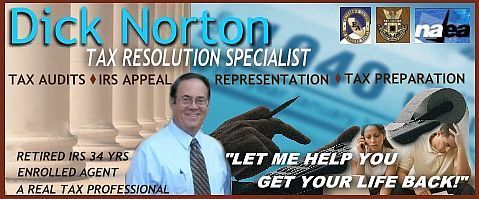Each year, the Internal Revenue Service sends millions of letters and notices to taxpayers for a variety of reasons. Here are eight things to know about IRS notices – just in case one shows up in your mailbox.
1. Don’t panic. Many of these letters can be dealt with simply and painlessly. However, do not IGNORE the notice! Some of them (like the Notice of Deficiency, or the Letter 1058) have specific time frames within which you have the right to appeal a proposed assessment or collection action. Do NOT lose that valuable right! So, act timely – and get help if you need it.
2. There are a number of reasons why the IRS might send you a notice. Notices may request payment of taxes, notify you of changes to your account, or request additional information. The notice you receive normally covers a very specific issue about your account or tax return.
3. Each letter and notice offers specific instructions on what you are asked to do to satisfy the inquiry.
4. If you receive a correction notice, you should review the correspondence and compare it with the information on your return.
5. If you agree with the correction to your account, then usually no reply is necessary unless a payment is due or the notice directs otherwise.
6. If you do not agree with the correction the IRS made, it is important that you respond as requested. You should send a written explanation of why you disagree and include any documents and information you want the IRS to consider, along with the bottom tear-off portion of the notice. Mail the information to the IRS address shown in the upper left-hand corner of the notice. Allow at least 30 days for a response. If the problem is complicated (like an audit response), I suggest you consider getting help. It is in everyone’s best interest to get matters resolved at the lowest possible level within the IRS. Often having a professional represent you will achieve that objective and avoid the time and expense of having to file and pursue an appeal of a proposed assessment or collection action.
7. Most correspondence can be handled without calling or visiting an IRS office. However, if you have questions, call the telephone number in the upper right-hand corner of the notice. Have a copy of your tax return and the correspondence available when you call to help us respond to your inquiry.
8. It’s important that you keep copies of any correspondence with your records.
For more information about IRS notices and bills, see Publication 594, The IRS Collection Process. Information about penalties and interest is available in Publication 17, Your Federal Income Tax (For Individuals). Both publications are available at http://www.irs.gov or by calling 800-TAX-FORM (800-829-3676).
Here is additional information from the IRS on several of the most significant notices they issue. I have added a few comments as appropriate:
| |
|
Letter 1058 (Collection Due Process Letter) |
|
Links:
Publication 594, Understanding the Collection Process (PDF 129K)
Publication 17, Your Federal Income Tax (PDF 2,072K)
Tax Topic 651, Notices — What to Do
YouTube Videos:
